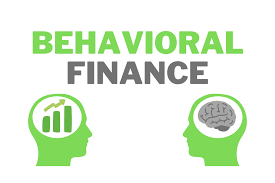About this class
This course is designed to provide an overview of an exciting new and fast-growing area in finance, which takes as its premise that investment decision-making and investor behavior are not necessarily driven by 'rational' considerations but by aspects of personal and market psychology. Behavioral finance recognizes that our abilities to make complex financial decisions are limited due to the biases and errors of judgment to which all of us are prone. This course introduces cognitive biases, discusses the impact of such biases on financial decision-making, and explores the behavior of individual investors, fund managers, and corporate managers.
Comments (0)
Learning Material
Title
Volume
1. Introduction to Behavioral Finance
1.25 MB
<p>Introduction to Behavioral Finance</p>
2. Prospect Theory and Framing Effects
2.35 MB
<p>Prospect Theory and Framing Effects</p>
3. Overconfidence and Heuristics
1.66 MB
<p>Overconfidence and Heuristics</p>
4. Mental Accounting and Budgeting
1.83 MB
<p>Mental Accounting and Budgeting</p>
5. Loss Aversion and Endowment Effect
1.40 MB
<p>Loss Aversion and Endowment Effect</p>
6. Market Bubbles and Herd Behavior
1.88 MB
<p>Market Bubbles and Herd Behavior</p>
7. Investor Sentiment and Market Efficiency
2.34 MB
<p>Investor Sentiment and Market Efficiency</p>
8. Behavioral Biases in Investment Decision Making
4.55 MB
<p>Behavioral Biases in Investment Decision-Making</p>

Exams
Title
Min
Grade
Attempts
Status
Behavior Finance Exam
50
Questions, 90
Min
50/100
0/1
-
Certificates
Title
Min
Grade
Behavior Finance Exam
50/100
0
0 Reviews
